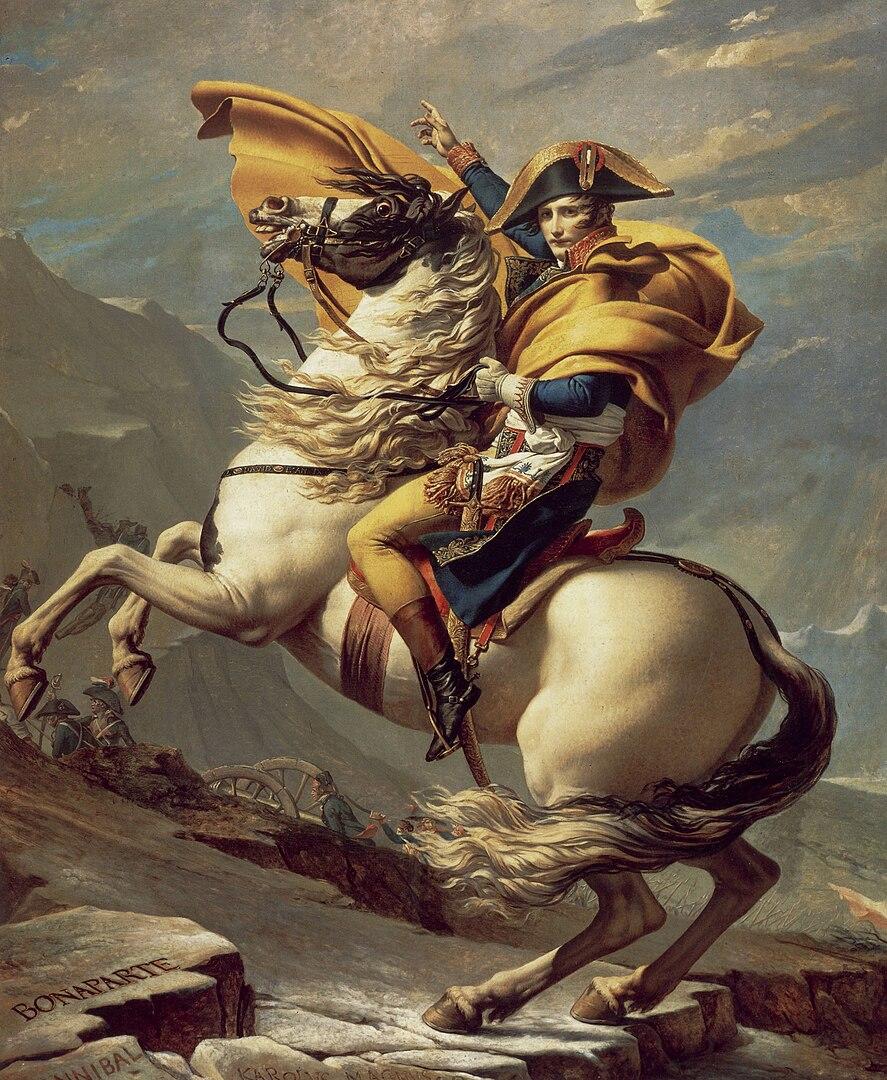Chapters
In the aftermath of the Reign of Terror, amidst a landscape of political instability and economic hardship, one man would emerge to reshape the course of French history: Napoleon Bonaparte. Rising from relative obscurity to become one of the most influential figures of his time, Napoleon's ascent to power was marked by his impressive military prowess, political acumen, and ambitious reforms that would leave Napoleon’s mark on France and Europe.

The Aftermath of the Terror and the Rise of Napoleon
The Reign of Terror, with its mass executions and radical excesses, had left France deeply scarred and divided.
The Thermidorian Reaction was a period of political upheaval and counter-revolutionary backlash that followed the fall of Robespierre and the end of the Reign of Terror during the French Revolution. It took its name from the month of Thermidor in the French Republican calendar, during which Robespierre was overthrown. The Thermidorian Reaction marked a significant shift in the direction of the revolution, with the rollback of radical policies, the suppression of revolutionaries, and the emergence of a more conservative political order.
The Thermidorian government launched a campaign of repression against perceived radicals and Jacobin sympathisers. Thousands of individuals, including former revolutionaries, were arrested, imprisoned, or executed in what came to be known as the White Terror. The White Terror was marked by arbitrary violence, revenge killings, and political purges, as the Thermidorians sought to consolidate their power through violent means and eliminate opposition.
The Directory
The Directory, established in 1795 as a response to the collapse of the revolutionary government, sought to restore stability and govern the country through a system of checks and balances. However, the Directory faced numerous challenges, including economic crises, political infighting, and military setbacks abroad.
The Directory had become the new government of France after a convention that made a new French constitution after the Reign of Terror. The government had an upper house called the Council of Ancients as well as a Council of Five Hundred designed to represent the masses. The new government wanted to cut back on austerity while also suppressing extremists such as Jacobins.
The Directory was established following the fall of the radical Jacobin regime and the execution of Maximilien Robespierre in 1794. It aimed to provide a more stable form of government based on a bicameral legislature and an executive council of five members.
The Directory: Financial and Political Problems and Policies
The Directory had faced significant financial and political challenges, including inflation, corruption, and opposition from royalists and radicals. To address these issues, the Directory implemented various policies, including currency reforms, crackdowns on corruption, and efforts to stabilise the economy. However, these measures were often ineffective, and the Directory struggled to maintain control over the country.
The Directory's main strength lay in its ability to maintain a degree of stability amidst the chaos of the post-revolutionary period. However, it was also plagued by corruption, inefficiency, and internal divisions. Its reliance on military force to suppress dissent further eroded its legitimacy and contributed to its eventual downfall.
Under the stewardship of Napoleon, royalist attackers were repelled on October 5, 1795 (13 Vendémiaire) when they tried to rebel against the National Convention. 1,400 royalists died and many more were forced to flee. This victory for Napoleon Bonaparte brought popularity, fame, wealth, and even the patronage of the newly-formed government.
Napoleon Takes Control
Amidst relative chaos at home, Napoleon Bonaparte emerged as a charismatic and ambitious military leader. His victories in Italy had earned him widespread acclaim and made him a popular figure among the French people, despite mixed results in some Egyptian campaigns.
Napoleon was trying to cut off Britain's links with Egypt
With his new-found popularity, and sensing an opportunity to seize power, Napoleon orchestrated a coup d'état on November 9, 1799 (18 Brumaire), overthrowing the Directory and establishing himself as First Consul of France. He was backed by influential military figures he had built relationships with throughout the years.
Military Campaigns and Expansion Abroad
Under the Directory, France continued its military expansion abroad, with campaigns in Italy, Egypt, and other parts of Europe. These military successes bolstered France's prestige and helped to consolidate Napoleon's power base. However, they also stretched France's resources and contributed to growing opposition to the Directory's rule. Napoleon was all the time increasing his reputation as a military leader and building powerful alliances.
Napoleon's Consolidation of Power and Establishment of Emperor Status
Following his rise to power as First Consul, Napoleon embarked on a series of reforms aimed at consolidating his authority and modernising France. In 1804, he proclaimed himself Emperor of the French, effectively ending the revolutionary period and establishing a new era of centralised rule.
Napoleon's reign saw significant constitutional developments, including the establishment of the Napoleonic Code, a comprehensive legal system that remains influential to this day. He also introduced reforms aimed at social change, including the abolition of feudal privileges and the establishment of a merit-based system of government.
Napoleon’s rule was a dictatorship, though he did not call it one. He used many political tools to try to keep his power as well as promote his ideas.
Social Change
Napoleon's rule brought about significant social change in France, including the establishment of class distinctions and titles, the reform of education, and changes in the status of women. While Napoleon's regime was marked by authoritarianism, it also brought about important reforms aimed at modernising French society.
Censorship and Propaganda
Napoleon's government exercised strict control over the press and media, using censorship and propaganda to shape public opinion and maintain power. Despite these restrictions, Napoleon's regime was able to maintain a strong grip on power through a combination of repression and propaganda.
Influential painter Jacques-Louis David was a supporter of Napoleon and helped to spread his ideas through artwork as well as his considerable sway over the public. Much of his artwork glorified Napoleon as a great leader.

The Position of the Church
Napoleon sought to reconcile the revolutionary principles of secularism with the traditional authority of the Catholic Church. In 1801, he signed the Concordat with the Pope, establishing Catholicism as the official religion of France while also recognising religious freedom.
Legal and Administrative Change
Napoleon's reign saw significant changes in the legal and administrative systems of France. He centralised power in the hands of the state, introduced uniform laws and regulations, and established a system of prefects and police to enforce his authority.
The Napoleonic Code was a revolutionary civil code that is still used (with alterations and modernisations) today.
“Under the code all male citizens are equal: primogeniture, hereditary nobility, and class privileges are extinguished; civilian institutions are emancipated from ecclesiastical control; freedom of person, freedom of contract, and inviolability of private property are fundamental principles.”

Financial and Economic Policies and Problems
Napoleon's rule was marked by ambitious financial and economic policies aimed at modernising France and strengthening its economy. He introduced reforms such as taxation, central economic planning, and the Continental System, a blockade designed to weaken Britain economically. However, these policies also led to economic hardship for many French citizens and contributed to growing discontent with Napoleon's rule.
Napoleon Bonaparte's rise to power and prominence was a defining moment in French history, marking the end of the revolutionary period and the beginning of a new era of centralised rule. His reign saw significant reforms and developments in areas such as law, government, and society, shaping the course of France and Europe for years to come. However, Napoleon's authoritarianism and expansionist ambitions ultimately led to his downfall, underscoring the complexities and contradictions of his legacy.
Summarise with AI:








